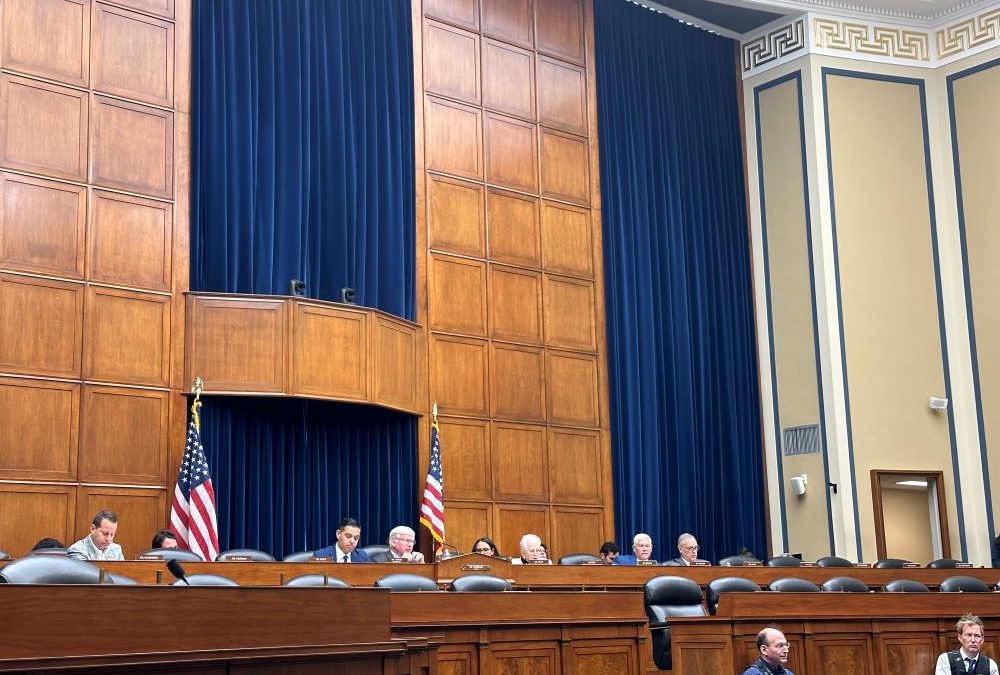WASHINGTON – Members of the House Subcommittee on National Security, Border, and Foreign Affairs clashed Wednesday over whether religious persecution is only a problem outside of the United States.
Witnesses were called to testify on the persecution of Christians in Nigeria and Iran, the Uyghurs in China and women in Afghanistan. But Democrats on the subcommittee redirected the focus to the growing violence in U.S. society associated with Christian nationalism, who believe America was founded as a Christian nation and its politics should reflect that.
Rep. Maxwell Frost, D-Fla., who was raised Southern Baptist and identified himself as a “man of faith,” called out Rep. Marjorie Taylor Greene, R-Ga., for comments she made last year attacking the “godless left” after she proclaimed herself a “proud Christian Nationalist.”
“Christianity is not Christian nationalism. I oppose my faith be used to whitewash a racist, violent and dangerous ideology,” Frost said.
Amanda Tyler, executive director of the Baptist Joint Committee for Religious Liberty, shared Frost’s concern, highlighting the Jan. 6, 2021 attack on the Capitol as an example of both the violent aspects of Christian nationalism and how “Christian nationalism often overlaps with and provides cover for white supremacy.”
Democrats cited the killing of the six-year-old Palestinian American boy in Illinois and anti-Israel messages projected on George Washington University’s campus buildings Tuesday night as just a few examples of Islamophobic and antisemitic outbursts related to the Israel-Hamas War.
What started out as a relatively cordial hearing changed course when Rep. Jared Moskowtiz, D-Fla., called out his Republican colleagues who “cozy up to neo-Nazis, Proud Boys, and white supremacist groups,” for their silence on antisemitism here and abroad.
For five minutes, Moskowitz and Rep. Pete Sessions, R-Texas, talked over each other, as the subcommittee chairman, Glenn Grotham, R-Wis., banged his gavel numerous times attempting to bring order back to the hearing room.
Sessions refuted Moskowitz “broad statements,” about the Republican party. Moskowitz then identified former president Donald Trump as one of the Republicans and edited his statement to “not all” Republicans.
“When my Republican colleagues, not all of them, some of them, cozy up to neo-Nazis, Proud Boys, and white supremacist groups … sometimes there is silence from our friends on the right,” Moskowitz said.
Moskowitz said that “both parties are failing” when it came to calling out antisemitism.
“It’s super easy to criticize the other side. It is much harder to do it when it is within your own ranks,” Moskowitz said.

